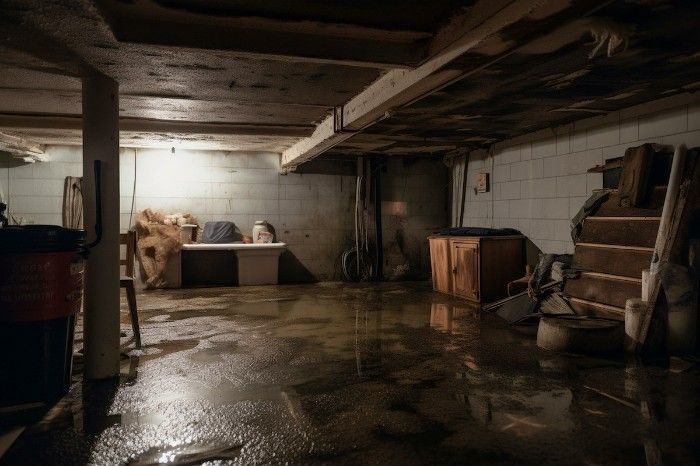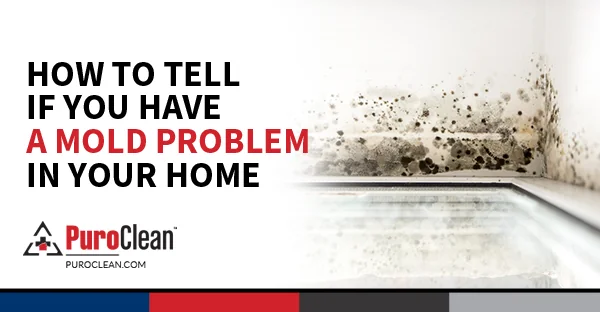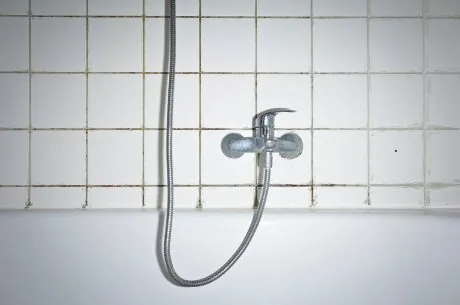If you’ve ever descended into the depths of your home only to be greeted by that distinctive, wet dog odor or the unmistakable musty basement smell, you’re not alone. That distinct, musty scent can make an inviting space a source of frustration and discomfort. But fear not; we’ll discuss why the particular odor occurs and how you can stop it from spreading. Get ready to reclaim and transform your basement into a fresh and enjoyable living space while learning how to get rid of musty basement smell.
Why Does My Basement Smell Musty?
A musty basement smell is a common problem that many homeowners encounter. It can be unpleasant and may indicate underlying issues that must be addressed. Understanding the causes of musty basement smells is crucial in finding effective solutions to eliminate them and prevent their recurrence. Several factors can contribute to this unwelcome odor, and here are some of the primary causes.
- Moisture and humidity. Basements are often prone to excessive moisture and high humidity levels. This can result from poor ventilation, water seepage through cracks in the walls or foundation, leaks in plumbing or drainage systems, or inadequate waterproofing. When moisture accumulates, it creates a humid environment, producing a distinct odor.
- Poor ventilation. Inadequate basement airflow and ventilation can contribute to the musty smell. Without proper air circulation, dampness and odors become trapped, allowing mold and mildew to flourish. Opening windows, using fans, or installing a dehumidifier can help improve ventilation and reduce the smell.
- Water leaks and flooding. Water leaks from pipes, plumbing fixtures, or foundation cracks can introduce moisture into the basement, leading to mold growth and a musty smell. Similarly, basement flooding due to heavy rains, inadequate drainage, or malfunctioning sump pumps can result in persistent dampness and a lingering smell.
- Mold and mildew growth. Mold spores and mildew thrive in damp environments and can quickly colonize basements with excess moisture. They release spores into the air, causing a musty odor. Besides the smell, mold and mildew can pose health risks, especially for individuals with allergies or respiratory conditions.
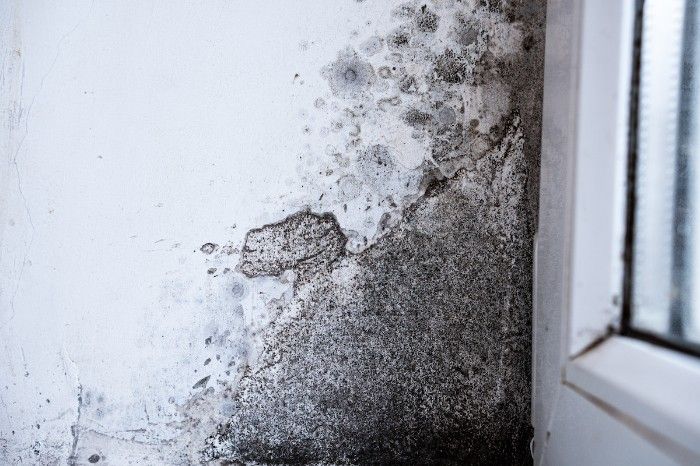
- Poor maintenance and cleanliness. Neglecting regular cleaning and maintenance of the basement can increase the chances of a musty odor. Dust, dirt, and organic matter can accumulate over time, providing a food source for mold and mildew.
- Building materials and furnishings. Some building materials used in basements, such as wood, carpeting, or drywall, can absorb moisture and promote mold growth. Additionally, if these materials have been affected by water damage or flooding, they can trap odors even after treating the moisture source. Removing and replacing damaged materials may be necessary to eliminate the smell.
- Lack of sunlight. Basements typically receive less natural light than other house parts. Sunlight’s natural UV properties can help prevent mold and mildew growth. The absence of the sun in basements can contribute to a damp, musty smell. Consider using artificial lighting or installing windows or light wells to allow more natural light into the space.
The causes of musty smells are often related to moisture, humidity, mold, and poor ventilation. It is crucial to address these issues promptly to prevent further damage and to maintain a healthy living environment.
How to Get Rid of Musty Basement Smell
You’re not alone if you have a musty smell in your basement. Basements are notorious for harboring dampness and odors due to their lack of ventilation and exposure to moisture. However, there are several steps you can take to tackle and eliminate the musty smell, creating a fresh and pleasant environment. Here are some tips to help you eliminate that unwanted smell in your basement.
- Identify the odor source. Before effectively eliminating the musty smell, you must identify the source. Check for any signs of water leakage, mold, basement moisture, or stagnant air. You should also check to see if you have clogged rain gutters, sewer backups, leaky pipes, or even a cracked seal in your basement windows, as these problems can all contribute to the problem.
- Improve ventilation. Proper ventilation reduces basement odors. Open windows and use fans to increase air circulation. Consider installing exhaust fans or a dehumidifier to control moisture levels and promote airflow.
- Eliminate moisture. Moisture is a primary cause of musty odors. Using a dehumidifier can extract excess moisture from the air. Empty and clean the dehumidifier regularly to prevent bacteria within the unit. Additionally, promptly fix any water leaks or condensation issues to avoid further moisture buildup.

- Clean and declutter. Clean the basement thoroughly to remove accumulated dust, dirt, or debris. Pay extra attention to corners, walls, floors, and surfaces. Use a vacuum cleaner with a HEPA filter to ensure it captures fine particles effectively. Decluttering your basement decreases the possibility of mold and mildew growth.
- Treat mold and mildew. However, If you spot any mold or mildew growth, treat it as quickly as possible. For small areas, you can clean them yourself. Wear protective gloves, goggles, and a mask, and use a mixture of a disinfectant solution for mold and mildew to clean affected areas. Scrub the surfaces thoroughly and ensure they are scorched afterward. If the mold growth is extensive, contacting an experienced professional is best.
- Use natural odor absorbers. Natural odor absorbers such as activated charcoal, baking soda, and vinegar can eliminate musty smells by gradually neutralizing them. Place a bowl with one of these items to trap the odor.
- Air out items. Clothing, books, furniture, and other items stored in the basement may contribute to the musty smell. Take these items outside on a sunny day to air them out. Sunlight and fresh air will help eliminate odors and kill any bacteria or mold present.

- Seal basement walls and floors. Seal your basement’s concrete walls to prevent water and excess moisture from entering through cracks. Doing so can cut down on the musty smell. Use waterproof paints or coatings specifically designed for basement applications. To obtain the best results for preventing moisture from coming through foundation walls, seal the walls from the outside and create proper water management through drainage systems that divert the water away from the building.
- Contact the experts. In severe cases where the musty odor persists despite your efforts, it may be beneficial to seek professional assistance. A property remediation specialist can assess the situation, identify any hidden sources of mold, and provide appropriate solutions.
By following these steps, you can effectively eliminate the musty smell in your basement. Remember, prevention is key to avoiding future odor issues.
Preventing Mold Growth in Your Basement
Mold growth in basements is a common problem that can lead to various health issues and property damage. Moisture and lack of proper ventilation are the main culprits behind basement mold growth. However, with some preventive measures, you can significantly reduce the risk and maintain a healthy living environment. Here are some effective strategies to prevent mold growth in basements.
First and foremost, controlling the moisture levels in your basement is crucial. Repair any leaks or cracks in the foundation walls, floors, or pipes to prevent water seepage. If you live in an area prone to flooding, install a sump pump to remove excess water away from the building. Consider using a dehumidifier to maintain optimal humidity levels, ideally between 30 and 50 percent. Regularly empty and clean the dehumidifier to prevent mold growth within the appliance.
Proper ventilation is essential to keep the air circulating in the basement, reducing moisture buildup. Since natural airflow is difficult in a basement, consider installing exhaust fans to expel humid air and bring in clean air.
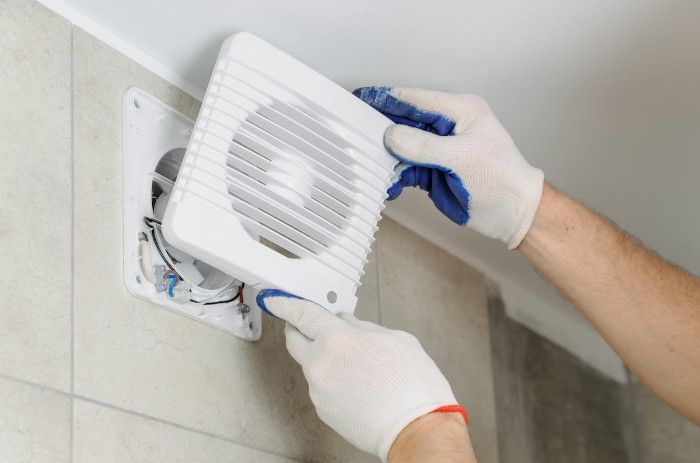
Another effective preventive measure is to improve insulation. Insulate the basement walls and floors to prevent condensation. This will help keep the surfaces warmer and reduce the chances of moisture accumulation.
Routine cleaning and maintenance are vital in preventing mold growth. Regularly inspect the basement for any signs of water damage, leaks, or mold growth. Clean any visible mold promptly using a solution of water and detergent. Ensure that any items in the basement are properly sealed and stored in moisture-resistant containers.
Lastly, monitoring and addressing any elevated humidity or moisture in the basement is important. Consider using a hygrometer to measure humidity levels regularly. If you notice any persistent moisture issues or mold growth despite your preventive efforts, consult a professional for a thorough inspection and remediation.
By implementing these preventive measures, you can significantly reduce the risk of mold growth in your basement. A dry and well-ventilated basement will protect your property and ensure a healthy living environment for you and your family.
Call PuroClean For a Persistent Musty Basement Smell!
Are musty odors in your basement making life unbearable? It may mean mold is present! At PuroClean, we understand how unpleasant a musty odor can be. We are here to help you eliminate the smell and restore your property with expert mold remediation services.
Our certified professionals have years of experience in mold removal and moisture control. From assessing the extent of the problem to providing efficient remediation solutions, we are here to help you every step of the way. We also offer professional advice on reducing humidity levels in your basement and preventing mold growth. As the “Paramedics of Property Damage®,” our team is here 24 hours a day, seven days a week, for your emergency. Contact us today at (800) 775-7876 to schedule a consultation.
